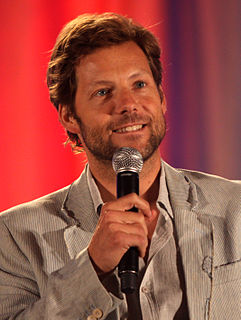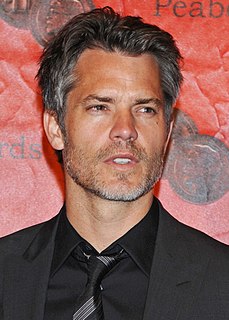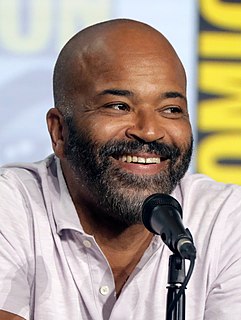A Quote by Amanda Warren
If you just stay with it and take it scene by scene, episode by episode, all of the questions that I have, as an actor, tend to answer themselves.
Related Quotes
We do want the freedom to move scenes from episode to episode to episode. And we do want the freedom to move writing from episode to episode to episode, because as it starts to come in and as you start to look at it as a five-hour movie just like you would in a two-hour movie, move a scene from the first 30 minutes to maybe 50 minutes in. In a streaming series, you would now be in a different episode. It's so complicated, and we're so still using the rules that were built for episodic television that we're really trying to figure it out.
have a much harder time writing stories than novels. I need the expansiveness of a novel and the propulsive energy it provides. When I think about scene - and when I teach scene writing - I'm thinking about questions. What questions are raised by a scene? What questions are answered? What questions persist from scene to scene to scene?
Everything we do on 'Luck' is absolutely no different than if we'd had been doing it in a feature film. There's no short cuts. The specificity of what every single line might mean. Everything Dustin Hoffman does. Kevin Dunn is as authentic in the last scene of the last episode as he is in the first scene of the first episode.
The only episode which was completely my idea was for Mitch Pileggi, the actor who portrays Skinner, the Assistant Director of the FBI. He appears often in the series, but only for a few scenes. You know virtually nothing about him. I wanted him to have an episode that was his alone, so I wrote Avatar for him. He even has a scene that's pretty . . . hot [knowing smile]. He was very happy.
[Jack Nash] was very different than anything I'd played. In fact, there's a scene I have in a tent with Louis Ferreira, who just did an episode of Travelers. He was in the fourth episode of Travelers playing another team leader, and we really have it out, not unlike the way we did in the tent in Andromeda.
Occasionally, as an actor, you're not... Sometimes, at least for me, I'm not fully in the groove until the second or third take, in which I would not want to just stop. If it's a scene that takes a lot of work and time, sometimes the scene gets better with time, and sometimes it gets exhausted. I think it just depends on the scene.
I was talking to Shonda Rhimes the other day and I said, "I. Do. Not. Know. How. You. Do. This." While we're writing episode 10, episode 6 is shooting, episode 3 is in the edit, and episode 2 is in its color session...You've got seven episodes in different parts! It's a wild, wild, wild ride, which I thoroughly enjoyed. It was badass and amazing.



































